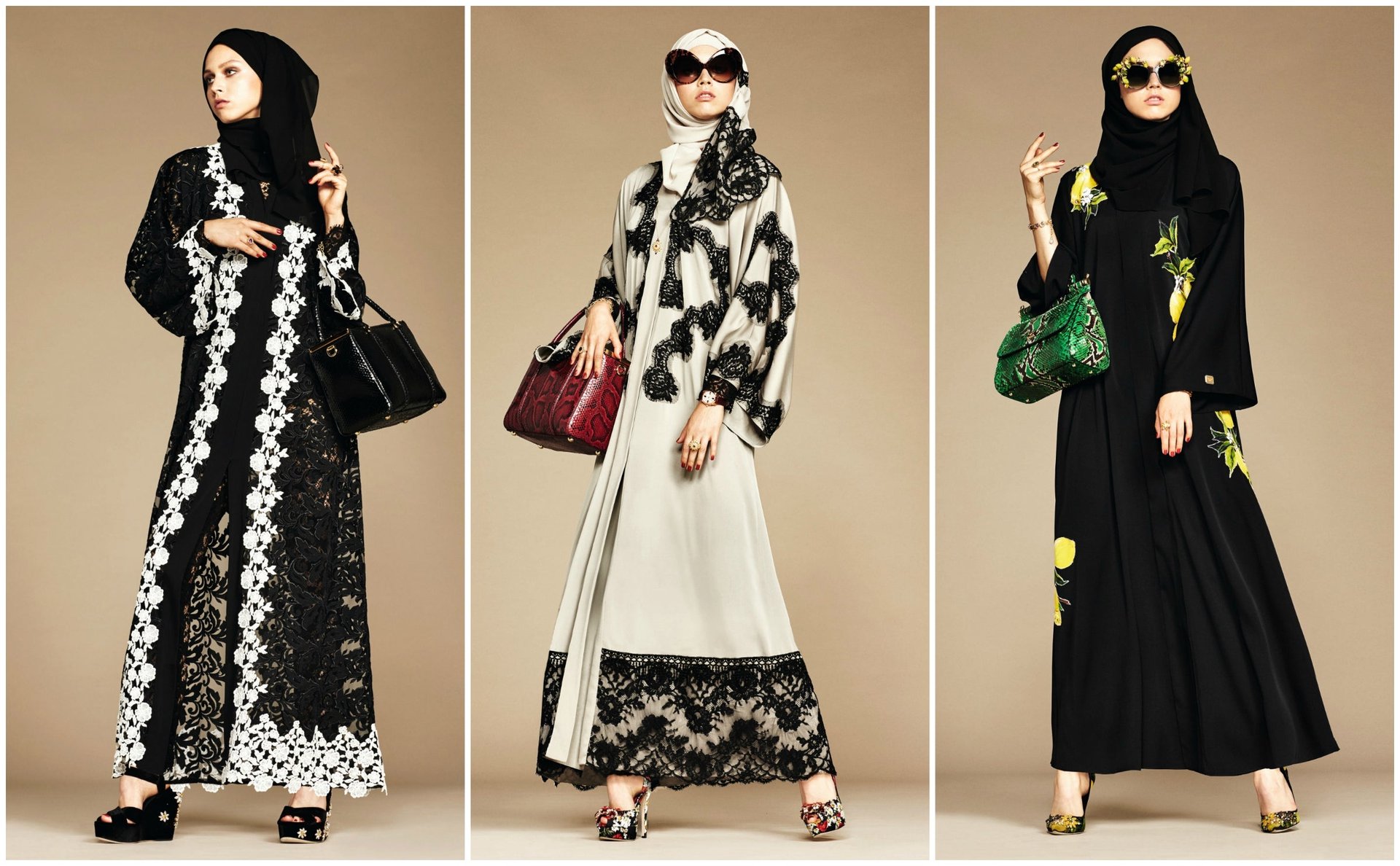Dolce & Gabbana launched a line of beautiful, high-end hijabs and abayas
Luxury label Dolce & Gabbana, known for its signature Sicilian style, is taking its brand in a much more modest direction with the launch of a line of abayas and hijabs.


Luxury label Dolce & Gabbana, known for its signature Sicilian style, is taking its brand in a much more modest direction with the launch of a line of abayas and hijabs.
The collection, which debuted on Style.com’s Arabia site, features long, airy abaya cloaks in mostly muted neutrals, such as black, white, and a sandy beige, on a single model, whose hair is covered with a hijab. The garments are all beautifully embellished with touches that recall the brand’s Italian heritage: Lace, lemons, and roses all make appearances, for instance, as they did in the label’s spring-summer 2016 runway collection.
Stefano Gabbana also posted some of the images to his Instagram account, using the hashtag #dgabaya.
This open embrace of the modest, traditional dress favored by Muslim women is a first for Dolce & Gabbana, but certainly not for fashion. In the last year or so, brands such as H&M and Uniqlo have launched campaigns aimed at hijab-wearing shoppers. There are some 800 million Muslim women worldwide, and in 2013, Muslim shoppers spent an estimated $266 billion (pdf) on clothing and footwear. That number is expected to reach $488 billion by 2019, representing a lot of potential profit for fashion brands.
In the Middle East specifically, the market for personal luxury goods of the sort Dolce & Gabbana sells is $6.8 billion (pdf), which may have also had some influence on Chanel’s decision to show its cruise 2015 collection in Dubai. Haute couture is especially popular, with approximately one-third of haute couture clients coming from the region.
It’s a shopper Dolce & Gabbana is eager to please. Recently, the New Yorker wrote about the party that Domenico Dolce and Stefano Gabbana hold each year to show their Alta Moda collection, which consists of one-of-a-kind pieces that are made to measure for a highly exclusive and wealthy clientele. The designers had inadvertently held the event this summer during the holy month of Ramadan, resulting in the absence of many Middle Eastern guests.
“Next time, I will check Ramadan,” Dolce said. “And I will organize something special in Milan, just for everyone who could not come.”